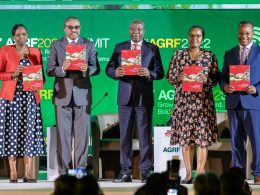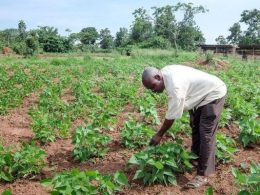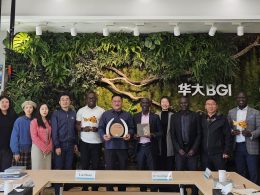By Mark Kawalya
Grain farmers in Uganda are benefiting from moisture meters, which detect the moisture levels in harvested cereals and allow them to take appropriate action to dry their grains properly. This minimizes post-harvest losses and curbs aflatoxin toxicity in grains. The meters were introduced by the Agribusiness Initiative Trust (ABi Trust), an organization that is leading the campaign for quality cereals in Uganda.
The firm assists growers in taking the necessary precautions to avoid aflatoxin mold contamination, which can occur in stored grain and destroy up to 40% of East Africa’s annual grain production. It also causes hundreds of deaths in cases where unsuspecting individuals eat highly contaminated maize. Over 10,000 Ugandan grain farmers will benefit from the meters during the current pilot program, which aims to improve quality among harvest targets.
Svend Kaare Jensen, CEO of ABi Trust, said that the initiative is a part of a larger strategy to support quality control in value chains for priority cereals. Pilot Farmer Organizations from 10 districts—Iganga, Jinja, Kyankwanzi, Isingiro, Kiboga, Kamwenge, Mubende, Mayuge, Lira, and Oyam—were handed ten moisture meters.
The organization’s efforts are being implemented at a time when a large number of farmers are suffering from poor-quality produce, mostly as a result of improper post-harvest handling methods. While presenting the moisture meters to the farmer organization representatives, Jensen explained, “By giving this equipment to the farmer group organization, we are trying to roll out a quality assurance system in agribusiness value chains.”
The farmers in the groups will be able to monitor quality patterns and command higher prices in the marketplaces by using the moisture meters to measure the moisture content of the grains they harvest. High moisture content has an impact on cereal quality, which in turn impacts the cereal’s ultimate market value. At every point in the value chain, moisture content is universally used to determine price. Mukono cereal trader Moses Kiirya praised the action, pointing out that it will lessen low-quality produce and improve ties with the majority of the farmers from whom he purchases cereals.








